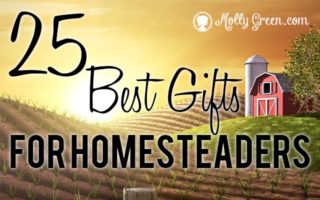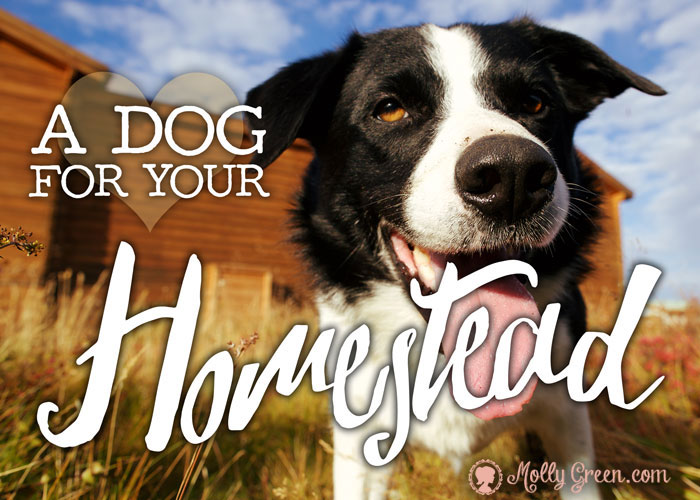When choosing a homestead dog many factors need to be taken into account, just like choosing any animal for the homestead. Sure, training is important, but mostly it’s figuring out what you want your dog to do and then finding the right dog for that job. We’ve had many different types of dogs on our farm. Some have been great! Some have been, well … not so great. Thankfully, we’ve learned over the years, and people have commented that we now have some of the best farm dogs around.
What is the Best Breed of Dog for Homesteading?
When people ask which breed of dog would be best for their homestead, I ask what it is that they want done. Do they want a guard dog, a herd dog, or a companion dog? Do they want a lap dog that will stay in the house or an outside one to guard the livestock? Those are some of the questions that have to be answered before you start looking for your dog.
You wouldn’t expect a poodle to stay out with the cattle in the middle of a snowstorm. And although they would love to, you wouldn’t want a Great Pyrenees to sit on your lap all day long. You need to match the dog with its job. The best dogs for protection and family may not be the best breed for herding livestock.
Good Livestock Guarding Homestead Dogs
If you want a dog to guard your livestock, look into Livestock Guarding Dogs (LGDs). They usually live with the farm animals. Most LGDs have been raised with livestock and think of them as “their” herd. They have been bred to have protective instincts and to think independently. They’re not there to direct the livestock where to go like herding dogs; they’re there to blend in with the animals and protect them from any kind of threat. They do this by barking and using aggressive behavior. Sometimes they may even consider some humans as a threat. Socialization is a must with these dogs or they can become aggressive towards people. If you want your animals protected though, these are the best dogs for you. The most popular breeds of LGDs are the Great Pyrenees, Akbash, and Anatolian Shepherd. There are many other breeds that fit into the LGD category including Mastiffs.
Dog Breeds for Herding Livestock
If you’re looking for a dog to help you herd and move your livestock, then you should look into the herding group of dogs like the Border Collie, Australian Shepherd, and Australian Cattle Dog—there are many others to choose from. The herding dog is like an extension of the farmer—a farmer’s tool. They are highly intelligent. Sometimes that’s a good thing, sometimes not so good. A herding dog can become bored very easily. If left alone for long periods of time, they’ll find something to keep themselves busy—chewing on things, tearing up furniture, or chasing cars. A herding dog needs a job. They thrive if given a job. Herding is a natural job for them. They were bred, for many years, to have the instinct to herd. They will herd any kind of animal. Sometimes, they may even herd children. The herding dog might nip at animals’ heels to get them to move. Be careful that they don’t try to “move” young children by nipping at them. Like any dog, they will need training.
Mixed Breeds Make Good Farm Dogs
Not all farm dogs need to be a certain breed. Many of the best dogs that I’ve owned have been mixed breeds. It’s just easier to make sure you know what you’re looking for in a farm dog, know your dog, and train accordingly. Sometimes they will surprise you with what they can learn, but just remember that they are still dogs. No matter how much you train your dogs, when you put a flappy, clucky chicken in front of them, most dogs will want to chase and “play” with it. I lost many chickens in the beginning of my homesteading years. So if you’re looking for a dog for your homestead, do your research. Figure out what job you will be giving your dog and then find the right dog for you. Look for reputable breeders if you want a certain breed. If breed doesn’t matter, check out your local animal shelter. There are many dogs that would love to live on a farm.
Sherri Lyons lives with her husband on a farm in the foothills of the Appalachian Mountains. They raise cattle, rabbits, chickens, and Australian Shepherds. They grow what they eat and eat what they grow. You can follow their adventures on Sherri’s blog at www.smallfarmgirl.blogspot.com.





